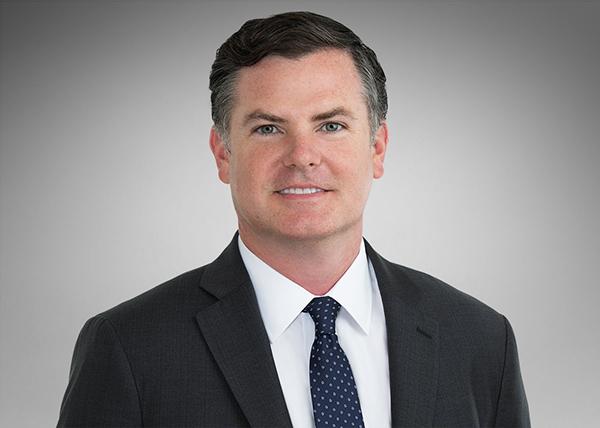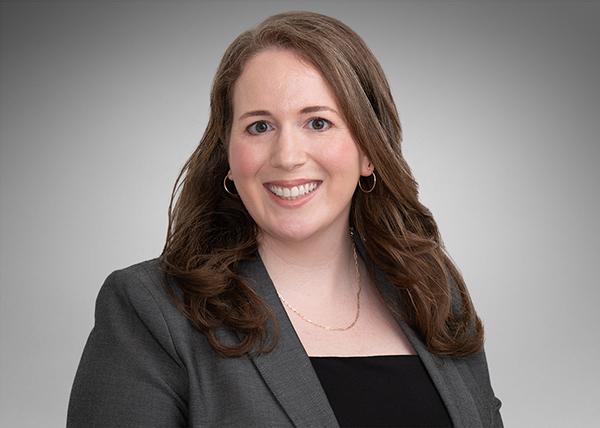On March 28, 2023, the Sixth Circuit issued a decision in U.S. ex rel. Martin v. Hathaway, No. 22-1463, 2023 WL 2661358 (6th Cir. Mar. 28, 2023) (“Opinion”) interpreting the remuneration and causation standards necessary to establish that a claim is “false or fraudulent” under the False Claims Act (“FCA”) because it “includes items or services resulting from a violation” of the Anti-Kickback Statute (“AKS”). The Sixth Circuit affirmed dismissal of the amended complaint, finding that it contained two flaws under the AKS and FCA: (1) the complaint did not turn on a cognizable theory of remuneration; and (2) the complaint failed to establish causation. On the first issue, the Sixth Circuit’s well-articulated holding that “remuneration” under the AKS “covers just payments and other transfers of value,” and not “any act that may be valuable to another” is an important and logical step in AKS case law. Opinion at 3–5. On the second issue, the Sixth Circuit held that “[w]hen it comes to violations of the [AKS], only submitted claims ‘resulting from’ the violation are covered by the [FCA]” and “resulting from” requires “but-for causation.” Id. at 7. The Sixth Circuit’s analysis of the causation standard brings it in alignment with the Eighth Circuit’s recent decision in U.S. ex rel. Cairns v. D.S. Medical LLC, 42 F.4th 828, 834–36 (8th Cir. 2022), and furthers a circuit split with the Third Circuit in U.S. ex rel. Greenfield v. Medco Health Sols., Inc., 880 F.3d 89, 95–98 (3d Cir. 2018). This split, and the proper causation standard adopted by the Eighth Circuit and reinforced by the Sixth Circuit’s decision in Martin, was discussed in a recent Law360 article.
At a basic level, the Martin case involves a business dispute between one of the relators and one of the defendants. Defendant Dr. Darren Hathaway is the owner of South Michigan Ophthalmology, P.C. (“South Michigan”), an ophthalmology practice located in Marshall, Michigan. Opinion at 1. Relator Dr. Shannon Martin was previously an employee of the practice. When South Michigan referred patients from Marshall for surgery, they tended to refer them to Oaklawn Hospital, another Marshall-based medical facility. Oaklawn would also refer their patients to South Michigan for ophthalmology services. Id.
In 2018, Dr. Hathaway was in the process of negotiating a merger with Lansing Ophthalmology, P.C. (LO Eye). Id. When Dr. Martin heard of the potential merger, she began to negotiate with Oaklawn to be a physician based at the hospital. Id. In October 2018, Oaklawn extended her a tentative offer, subject to board approval. Id. At the same time, there were separate discussions between the Oaklawn Board and Dr. Hathaway, during which Dr. Hathaway allegedly indicated that if Oaklawn hired Dr. Martin, it would “force” Dr. Hathaway “against [his] will (because [he had] no desire to pull out whatsoever), to pull out [his] cases and take them elsewhere.” Opinion at 2. The Board ultimately voted not to hire Dr. Martin. Id.
Dr. Martin and her husband sued Dr. Hathaway, Oaklawn, and South Michigan in a qui tam action alleging that Dr. Hathaway and Oaklawn engaged in an illegal kickback scheme that violated the AKS, and that that scheme resulted in the submission of claims for reimbursement in violation of the FCA. Opinion at 2. At a high level, Dr. Martin alleged that Oaklawn’s rejection of Dr. Martin’s employment in return for Dr. Hathaway’s commitment to continue sending local surgery referrals violated the AKS. Opinion at 1–2. The United States declined to intervene. Id. at 2. After an amended complaint was filed, Dr. Hathaway and Oaklawn filed a motion to dismiss. The district court granted the motion, dismissing the federal claims and declining to exercise jurisdiction over the state law claims. Id.
On appeal, the Sixth Circuit first focused on remuneration, which is not defined by the AKS. 42 U.S.C. § 1320a-7b(b)(1)(A). Focusing on the plain meaning of the word “remuneration,” which has consistently been defined as a form of payment in dictionaries and other statutes, the Court held that remuneration entails a payment or transfer of something of value, not merely any act that “may be valuable to another.” Opinion at 3. The Court found support for its ruling in OIG guidance and advisory opinions, usage of the term in other contexts, the context of the AKS, and relevant rulings by other appellate courts. Id. at 3–5. The Court also noted that the broader definition argued by relators and the government “lacks a coherent end point,” and could, as an example, make a hospital’s donation of top-of-the-line surgical equipment to charities in the hopes of attracting new doctors remuneration under the AKS. Opinion at 5.
Based on the definition adopted by the Court, the Court found that relators had failed to allege remuneration under the AKS. Relators had alleged that Oaklawn’s Board had refused to hire Dr. Martin in return for Dr. Hathaway’s general commitment to continue sending surgery referrals for his patients to Oaklawn. The Court found that, although Oaklawn’s decision not to hire Dr. Martin may have benefitted Dr. Hathaway, it did not “entail a payment or transfer of value to Dr. Hathaway” and “is not remuneration by any standard definition of the term.” Opinion at 5–6.
The Sixth Circuit then considered the causation standard required to allege a violation of the FCA predicated on an AKS violation. 42 U.S.C. § 1320a-7b(g). Specifically, the Court focused on the plain, textual meaning of the words “resulting from,” noting that the “ordinary meaning . . . is but-for causation.” Opinion at 7. That meaning applies unless strong “textual or contextual indication[s]” indicate a “contrary” meaning. Opinion at 7 (citing Burrage v. United States, 571 U.S. 204, 212 (2014)). Citing to the Eighth Circuit’s analysis in Cairns, the Sixth Circuit agreed that the ordinary meaning of the text—but-for causation—could not be overcome by context, and that Congress could have, but did not use language such as “tainted by” or “provided in violation of” when amending the AKS in 2010. Opinion at 7. Instead, Congress employed an “unambiguously causal standard” and courts, faced with an unambiguous statute, “must stop.” Opinion at 7 (citing Food Mktg. Inst. v. Argus Leader Media, 139 S. Ct. 2356, 2364 (2019)). In so holding, the Sixth Circuit expressly rejected the argument that the 2010 amendments sought to codify “several pre-2010 false certification cases [that] did not require a causal link between the kickback scheme and the claim presented.” Id. at 7. If Congress had wanted to codify those cases, it could have “by using language that did so . . . . But Congress used ‘resulting from,’ an ‘unambiguously causal’ standard even in the face of these pre-amendment cases.’” Id. (citing Cairns, 42 F.4th at 834–36).
The Sixth Circuit then analyzed whether relators had properly alleged but-for causation. The Court noted that once Oaklawn decided not to hire Dr. Martin, the relationship between Oaklawn and South Michigan continued as it had; “the alleged scheme did not change anything.” Id. Accordingly, the complaint did not identify any claims for reimbursement that would not have occurred without the underlying business dispute. Id. The Sixth Circuit also made other observations in support of its finding that the relators failed to allege but-for causation, including, for example, that Oaklawn’s individual physicians decide to whom they refer patients and the Martins failed to allege that Oaklawn could control or direct that decision; in other words, “independent choices [of physicians] doom the chain of causation.” Id. at 7–8.
The Sixth Circuit also addressed, and rejected, the government’s arguments that context should indicate a contrary meaning than the plain language of the statute. The Court rejected the government’s argument that, because Congress did not require but-for causation in the Anti-Kickback Statute, there’s no reason why it would have done the same for a corresponding claim under the False Claims Act. Opinion at 8. The Sixth Circuit also rejected the government’s legislative history-based argument, premised on history that the sponsors of the bill sought to overrule a district court decision that had dismissed an FCA claim because the wrongdoer did not personally submit the resulting claim. For the same reason, the Sixth Circuit noted that the Third Circuit’s contrary decision in Greenfield “offers little assistance because it relies primarily on legislative history.” Id. at 8.
As a final caution, the Sixth Circuit explained that reading causation too loosely or remuneration too broadly would mean that “[m]uch of the workaday practice of medicine might fall within [such an] expansive interpretation of the Anti-Kickback Statute, . . . sweeping in the vice-ridden and virtuous alike.” Opinion at 8. As an example, the Court noted that a doctor who was concerned with outdated surgical equipment could tell a hospital that she will send referrals only if the hospital upgrades its facilities. On one side, she has promised a referral; on the other side, under relators’ and the government’s proposed definition of remuneration, the hospital’s upgrades could be considered valuable. Id. Such an exchange, even though only motivated by a doctor’s desire to ensure quality care for her patients, could run afoul of the AKS and the FCA. Id. The Sixth Circuit added that a “faithful interpretation of the ‘remuneration’ and ‘resulting from’ requirements still leaves plenty of room to target genuine corruption.” Id. at 9.
The Sixth Circuit’s adoption of the plain reading of the statutory text of both the remuneration and causation elements is a significant development for potential FCA defendants. If you have any questions concerning the material discussed in this client alert, please contact the members of our False Claims Act practice.
Back
Back






